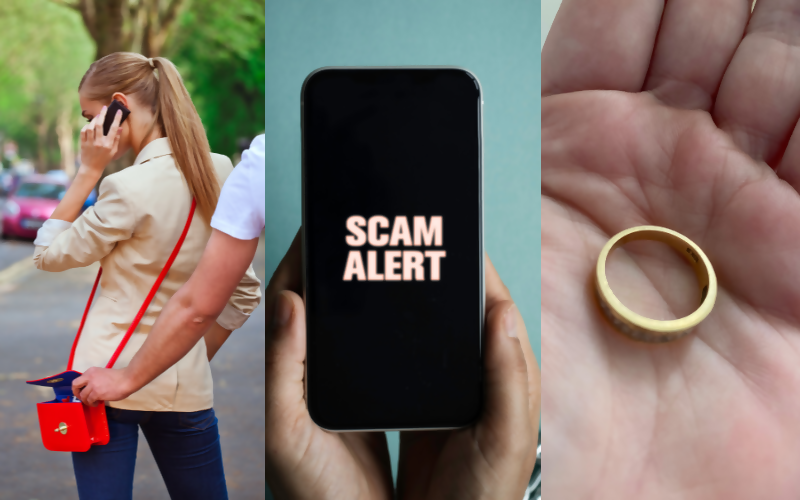10 Common European Tourist Scams and How to Avoid Them
Posted on 02/17/2023

Europe is a favourite destination for tourists from all over the world, with its rich history, stunning architecture, and unique cultures. Unfortunately, along with the many authentic experiences that travellers can have, there are also plenty of tourist scams to watch out for. Scammers are often creative and adaptable, so it's essential to be aware of common scams and how to avoid them. By taking a few simple precautions and staying alert, you can ensure that your European vacation is memorable for all the right reasons.
Here are 10 of the most common tourist scams along with some tips for how to avoid them:
- Fake "official" guides/Fake Tickets: Someone may approach you on the street and claim to be an official guide or employee of a popular tourist attraction. They will offer to take you to the attraction, but instead, lead you to a different location or charge you an exorbitant fee. Or they will offer discounted tickets to popular sites or events which are always fraudulent. To avoid this scam, always use official guides or purchase tickets directly from the attraction.
- Pickpocketing: Pickpocketing is a common crime in many European cities, especially in crowded tourist areas. To avoid being pickpocketed, keep your belongings close to your body and be aware of your surroundings. Also, be cautious when seated in outdoor cafes or parks keep your bag and your cell phone in your hand or keep it put away when not in use as thefts from cafe tables/parks have become very common in a few major European cities.
- Street games: Someone may approach you on the street and invite you to play a game with them. They will then ask you for money if you lose. To avoid this scam, do not engage with strangers who approach you on the street.
- Counterfeit currency: Someone may try to give you counterfeit currency when you are making a purchase. To avoid this scam, always check your change and do not accept damaged or torn bills. Also, be aware of people offering to exchange currency on the street for you. More often than not the bills they will provide you will be counterfeit. Always do exchange with a reputable source like a bank, the front desk of a hotel or your cruise ship.
- Fake petitions: Someone may ask you to sign a petition for a good cause, but they will then ask for a donation. To avoid this scam, do not sign petitions from strangers on the street.
- ATM skimming: Criminals may attach devices to ATMs that can steal your credit or debit card information. To avoid this scam, only use ATMs in secure and well-lit areas.
- Fake taxis: Someone may pose as a taxi driver and offer to take you to your destination. To avoid this scam, only use licensed taxis or reputable ride-sharing services.
- Fake police officers: Someone may pose as a police officer and ask to see your passport or wallet. To avoid this scam, ask to see their identification and call the local police station to verify their identity.
- Restaurant overcharging: Some restaurants may add hidden charges to your bill, such as a "service charge" or "table fee." To avoid this scam, always check your bill and do not be afraid to question any charges you do not understand.
- Friendship bracelets/Ring Scam: Someone may approach you on the street and offer you a friendship bracelet, which they will then tie onto your wrist. Or a gold ring they claim you dropped and they will put it into your hand or even onto your finger. They will then demand payment for the bracelet/jewellery and may even become aggressive if you refuse. To avoid this scam, do not engage with strangers who approach you on the street.
Overall, the key to avoiding tourist scams in Europe is the same as avoiding scams here at home be aware of your surroundings, be cautious of strangers, and use common sense when dealing with money and valuables. By taking these precautions, you can help ensure a safe and enjoyable vacation.





